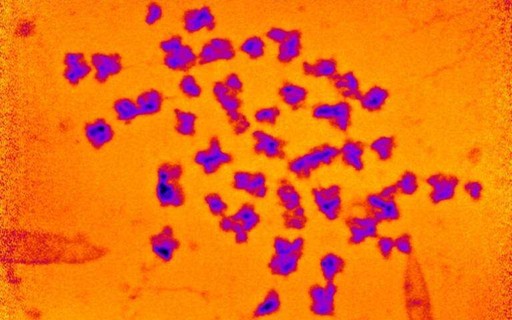
Chromosomes were seen in artificial colors (Photo: Archana Bhatiya et al)
Chromosomes have been studied by scientists for at least 130 years. Today, we know that these proteins have important functions, such as regulating the processes of cell division and “assembling” the two-meter strands of DNA inside our cells.
Despite this, many aspects remain a mystery. The discovery was published in the magazine Chromosome Research This two (31) exemplifies the scenario well: at the same time it brings new information into the world of science, it also raises other questions that must be answered.
The study, led by University College London in England, revealed the mass of human chromosomes for the first time. The researchers concluded that our 46 chromosomes in each somatic cell (a term that applies to all human cells except gametes) weigh about 242 pg – 242 trillionths of a gram.
The value is equivalent to 20 times the weight of DNA carried by these chromosomes and indicates that there may be components hitherto unknown in these structures.
“This is heavier than we expected and could indicate an unexplained increase in mass in chromosomes,” he notes, in the note, researcher Ian Robinson, professor at the London Center for Nanotechnology.
The investigation was carried out using the method of X-ray-assisted imaging, which enabled the three-dimensional reconstruction of chromosomes and allowed scientists to estimate the number of electrons scattered in them, and thus calculate 242 pg.
Knowing chromosomes better is of great importance to human health, says Archana Bhartia, lead author of the article.
“Many chromosomal studies are done in medical laboratories to diagnose cancer from patient samples,” she explains. He concludes, “Any improvement in our ability to image chromosomes is of high value.”

“Wannabe internet buff. Future teen idol. Hardcore zombie guru. Gamer. Avid creator. Entrepreneur. Bacon ninja.”

